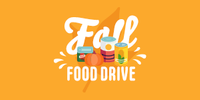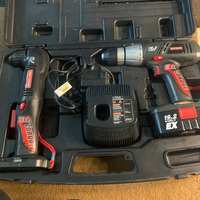“When you get that diagnosis, it can be very scary,” says Wendy Buhler, facilitator of the Cancer Connect Support Group in Steinbach. “Just talking to people that have gone through it gives encouragement from somebody that’s lived it.”
The Cancer Support Group, part of Southeast Cancer Support Services, meets every Tuesday at 1 p.m. at the organization’s board office along Highway 12 in Steinbach. Buhler says the goal is simple: connection and encouragement for anyone living with cancer, as well as survivors.
A safe, judgment-free space
“The meeting is fairly low-key,” says Buhler. “We sit around a table and the participants share how they’re doing with people that are going through a similar journey or have gone through the same journey. It’s without judgment, and we just support each other.”
Buhler says having survivors attend the meetings helps give hope to those newly diagnosed. She adds that discussions sometimes include practical tips and “psychoeducation” on topics like managing mental health and coping with anxiety.
Why connection matters
Buhler stresses that knowing you’re not alone can make a measurable difference. “It’s critical for people with cancer to know they are not alone because it can reduce anxiety and depression and actually isolation,” she says. “It leads to better emotional adjustment, a more positive outlook, and it can actually improve somebody’s quality of life.”
While she encourages participants to stay as active as possible, she also reminds them to rest. “There are days when you’ll have more energy, and days when you don’t,” she says. “Recognize that rest is also part of the healing process.”
Taking that first step
For those unsure about joining, Buhler offers reassurance. “Call me and ask about it — people generally find me easy to talk to,” she says. “Or come to one meeting. There’s no cost and no pressure. If it doesn’t fit what you were looking for, that’s okay.”
Participants are also welcome to bring someone along for support. “If it eases your worries, have someone wait for you in the lobby,” she adds.
How friends and family can help
Buhler says one of the biggest challenges people with cancer face is that loved ones sometimes don’t know what to say. “Family members often don’t know how to ask questions, and that can make the person with cancer feel isolated,” she says.
Her advice is to ask questions “without pity.”
“When you pull away, it can feel like you don’t care,” she explains. “It might just be worry or discomfort, but when you show up and ask, ‘How was your appointment?’ it eases their journey.”
The second piece of advice: listen. “Don’t try to share your own experience or compare stories. Just listen and validate what they are going through.”
Avoiding caregiver burnout
Buhler says caregivers often neglect their own needs while supporting someone with cancer. “You can’t take care of someone else if you’re not taking care of yourself first,” she says.
She encourages caregivers to prioritize sleep, healthy eating, and breaks. “Ask for help — you can’t do it all alone.”
Southeast Cancer Support Services is also developing a caregiver support group to help those walking alongside loved ones with cancer.
Offering real help
When it comes to offering assistance, Buhler says specificity matters. “People often say, ‘Let me know how I can help,’ but they rarely get a response,” she says. “Instead, be specific: ask, ‘Can I bring you a meal on Friday?’ or ‘Can I drive you to your treatment?’ That’s far more helpful.”
A community of care
Buhler says the cancer support group not only provides emotional connection but also hope. “It connects people who understand each other. It helps them cope, provides encouragement, and reminds them there’s light at the end of the tunnel.”
-With files from Carly Koop.




















